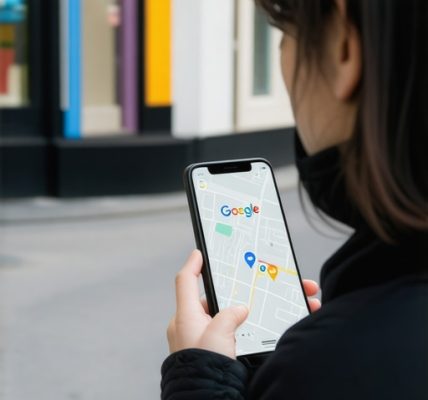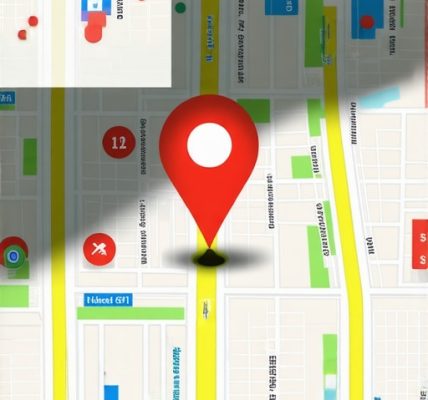Understanding the Importance of Local SEO for Businesses
In today’s digital landscape, mastering local SEO techniques is essential for businesses aiming to gain a competitive advantage. Local search engine optimization (SEO) focuses on optimizing your online presence to attract more business from relevant local searches. This is particularly important for small businesses that rely heavily on local clientele. With the rise of mobile device usage, more consumers are searching for services and products in their immediate area, making local SEO strategies increasingly critical.
Key Local SEO Techniques to Implement
To effectively enhance your local SEO efforts, consider implementing the following strategies:
1. Optimize Your Google Business Profile
Your Google Business Profile (formerly Google My Business) is a vital tool for local SEO. Ensure that your profile is fully optimized with accurate information, including your business name, address, phone number, and operating hours. Additionally, regularly update your profile with engaging content and images to attract potential customers. For detailed guidance on how to optimize your Google Business listing, check out our How to Optimize Your Google Business Listing Effectively page.
2. Utilize Local Keywords
Incorporating local keywords into your website content is essential for targeting your audience effectively. Research and identify keywords that potential customers are using to find services like yours. Use these keywords naturally in your website copy, including headings, meta descriptions, and image alt text. This will help improve your site’s visibility in local search results. For more insights into local keyword strategies, explore our GMB Keyword Strategy: Essential for Local Ranking post.
3. Generate Positive Customer Reviews
Customer reviews play a crucial role in local SEO. They not only influence potential customers’ purchasing decisions but also enhance your visibility in search results. Encourage satisfied customers to leave positive reviews on your Google Business Profile and other review platforms. For best practices on generating reviews and boosting your credibility, refer to our GMB Review Generation: Best Practices to Boost Your Credibility article.
4. Build Local Citations
Local citations are mentions of your business on other websites, directories, and platforms. Consistency in your business information across these platforms enhances your credibility and improves your local search rankings. Ensure that your business name, address, and phone number (NAP) are consistent everywhere online. For a deeper understanding of citation management, visit our GMB Citation Management: Boost Your Local Rankings page.
5. Create Location-Specific Content
Developing content that is tailored to your local audience can significantly impact your local SEO success. Consider writing blog posts, articles, and guides that incorporate local events, news, and community activities. This not only helps with SEO but also positions your business as an authority within the local community. Check out our Engaging GMB Content Strategies to Drive Local Sales for more ideas on local content creation.
Enhancing Your Local SEO with Backlink Strategies
Backlinks are a pivotal element in enhancing your local SEO efforts. They signal to search engines that your business is credible and relevant. Focus on acquiring backlinks from local businesses, industry-related blogs, and community websites. Engage in partnerships or sponsorships that can lead to high-quality backlinks. For detailed techniques on backlink building for local SEO, refer to our Effective Techniques for GMB Backlink Building Today article.
Leveraging Social Media for Local Engagement
Social media platforms are invaluable tools for boosting your local presence. Share your Google Business Profile updates, customer reviews, and local events on platforms like Facebook, Instagram, and Twitter. Engaging with your local audience through social media not only drives traffic to your site but also enhances your visibility in local searches. Discover more about effective local engagement strategies in our post on Unlock Effective GMB Engagement Strategies for Businesses.
Creating Shareable Content
Producing high-quality, shareable content can greatly increase your local SEO. Consider creating infographics, videos, or insightful blog posts that resonate with your local community. This content should not only be informative but also encourage shares and backlinks from other local businesses or influencers. For ideas on creating content that drives local traffic, see our guide on Engaging GMB Content Strategies to Drive Local Sales.
Monitoring Local SEO Performance
Regularly tracking your local SEO performance is crucial for understanding what works and what doesn’t. Utilize tools like Google Analytics and Google Search Console to monitor your website traffic, keyword rankings, and user engagement metrics. Adjust your strategies based on this data to continuously improve your local search visibility. For a comprehensive checklist on auditing your local SEO performance, visit our GMB SEO Audit: Improve Your Local Search Performance page.
Understanding Local Ranking Factors
To effectively compete in local searches, it’s essential to understand the factors that influence local rankings. Key elements include your proximity to the searcher, the relevance of your business to the search query, and the prominence of your business online. Keeping these factors in mind when optimizing your online presence can significantly boost your local SEO strategy. For a deeper dive into local ranking factors, check our article on Understand GMB Ranking Factors for Local SEO Success.
Optimizing for Voice Search in Local SEO
With the increasing use of voice search, optimizing for this technology is becoming vital for local businesses. Voice searches often have a conversational tone, so it’s important to incorporate long-tail keywords and natural language into your content. Additionally, focus on local queries that users are likely to ask, such as “Where can I find the best coffee near me?” This ensures your business appears in voice search results. For more tips on this emerging trend, explore our guide on How to Optimize for Near Me Searches via GMB.
As you implement these strategies, remember that local SEO is an ongoing process that requires regular updates and adjustments. Don’t hesitate to experiment with different approaches to see what resonates best with your audience.
Understanding the Role of Local Citations in SEO
Local citations are critical for enhancing your business’s visibility and credibility in local search results. These are online mentions of your business name, address, and phone number (NAP) across various directories and platforms. Ensuring that your citations are accurate and consistent helps build trust with search engines. This consistency not only aids in ranking but also improves customer experience as potential clients can easily find your business. For more detailed insights, visit our GMB Citation Management: Boost Your Local Rankings page.
Strategies for Building Quality Local Citations
Building quality local citations involves several strategic approaches:
- Identify Relevant Directories: Focus on industry-specific and local directories that cater to your target audience. Being listed in these directories can significantly improve your local SEO.
- Leverage Social Media Platforms: Ensure your business is listed on social media sites that cater to local engagement. Platforms like Facebook, Yelp, and LinkedIn can enhance visibility.
- Monitor and Update Your Citations: Regularly check the accuracy of your citations and promptly update any changes to maintain consistency.
Importance of Location-Based Keywords for SEO
Location-based keywords are essential for capturing the attention of local customers. These keywords help your business appear in relevant search queries where users are looking for services in specific areas. Using tools like Google Keyword Planner can assist in identifying effective location-based keyword opportunities.
Incorporating Location-Based Keywords
Once you’ve identified your location-based keywords, integrate them naturally into your website’s content. Use them in:
- Page Titles and Meta Descriptions: Ensure these elements accurately reflect your location and services.
- Blog Posts: Create content that addresses local events, news, or community highlights to attract local traffic.
- Image Alt Text: Optimize images with location-specific keywords to enhance visibility in image searches.
Engaging with Your Community Through Local Events
Participating in local events can significantly boost your business’s visibility and foster community relationships. Sponsoring or hosting local events not only promotes your brand but also positions you as an engaged member of the community.
Promotional Strategies During Local Events
When participating in local events, consider these promotional strategies:
- Social Media Coverage: Share live updates and behind-the-scenes content during the event on your social media channels.
- Collaborate with Local Influencers: Partnering with local influencers can expand your reach and attract a wider audience.
- Follow Up After Events: Use your website and social media to thank attendees and share highlights, encouraging ongoing engagement.
Utilizing Google Ads for Local Visibility
Google Ads can complement your organic local SEO efforts by placing your business at the top of search results for specific local queries. This can be particularly effective for businesses looking to drive immediate traffic.
Creating Targeted Local Ads
When setting up local ads, ensure they are tailored to your location and services. Use location targeting features to reach users within a specific radius of your business. Additionally, consider utilizing ad extensions to provide more information, such as location and contact details, enhancing click-through rates.
Incorporating these advanced local SEO techniques will not only help improve your rankings but also establish a strong connection with your local audience. By focusing on local citations, keywords, community engagement, and targeted advertising, your business can thrive in local searches, drawing more customers through the door.
Understanding the Role of Local Events in SEO Strategy
Engaging with local events offers a unique opportunity to enhance your business visibility and foster community relationships. By participating in local events, whether through sponsorship or hosting, you position your brand as a committed member of the community. This not only boosts your local presence but also helps in building trust with potential customers.
Effective Promotion During Local Events
When involved in local events, consider the following promotional strategies:
- Leverage Social Media: Share live updates, photos, and behind-the-scenes content during the event to create buzz and engage your audience. This can drive traffic to your Google Business Profile and website.
- Collaborate with Local Influencers: Partnering with influencers who have a strong local following can amplify your reach and attract new customers. Their endorsement can lend credibility to your business.
- Post-Event Follow-Up: After the event, use your online platforms to thank attendees and share highlights. This not only enhances engagement but also keeps your business top-of-mind.
Utilizing Google Ads for Enhanced Local Visibility
In addition to organic SEO efforts, Google Ads can be an effective tool for boosting your local visibility. By strategically placing ads that target specific local queries, your business can appear at the top of search results, driving immediate traffic.
Crafting Targeted Local Advertisements
When creating local ads, ensure they are tailored to your specific location and services. Utilize location targeting features to reach potential customers within a defined radius of your business. Incorporating ad extensions that provide additional information—such as your address and phone number—can also enhance click-through rates. For more on optimizing your Google Business Profile for maximum impact, check out our Optimize Google Business Listing for 2025 Growth page.
Monitoring and Adapting Your Local SEO Strategies
Regularly tracking your local SEO performance is essential for understanding which strategies yield the best results. Use tools such as Google Analytics and Google Search Console to monitor website traffic, keyword rankings, and user engagement metrics. By analyzing this data, you can make informed decisions about where to focus your efforts for continuous improvement.
Key Metrics to Track for Local SEO Success
When measuring your local SEO performance, consider these key metrics:
- Organic Traffic: Monitor the amount of organic traffic your website receives from local searches to gauge the effectiveness of your SEO efforts.
- Keyword Rankings: Keep track of how well your targeted keywords are performing in search results to identify opportunities for optimization.
- User Engagement: Analyze user behavior on your website, such as bounce rates and time spent on pages, to assess the quality of your content and user experience.
Emphasizing the Importance of NAP Consistency
Maintaining consistent NAP (Name, Address, Phone number) information across various platforms is vital for local SEO. Discrepancies can confuse search engines and potential customers, negatively impacting your local rankings. Ensure that your NAP information is identical across your website, Google Business Profile, and any directories where your business is listed.
Strategies for Managing NAP Consistency
To manage NAP consistency effectively, implement the following strategies:
- Regular Audits: Conduct regular audits of your online listings to identify and correct any discrepancies in your NAP information.
- Use Tools: Leverage online tools that can help monitor your business listings across various platforms to ensure consistency.
- Update Promptly: Whenever there are changes to your business information, ensure updates are made across all platforms immediately.
Comprehensive FAQ Section on Local SEO
What is local SEO and why is it important?
Local SEO is a subset of search engine optimization that focuses on optimizing your online presence to attract more business from relevant local searches. It is crucial for businesses seeking to connect with local customers, especially in an era where mobile searches for local services are on the rise.
How can I improve my local search rankings?
To improve your local search rankings, optimize your Google Business Profile, utilize local keywords, generate positive customer reviews, build local citations, and create location-specific content that resonates with your community.
What role do reviews play in local SEO?
Customer reviews are pivotal in local SEO as they enhance your business’s credibility and influence potential customers’ purchasing decisions. Positive reviews can improve your visibility in local search results, leading to increased traffic and conversions.
How do backlinks affect local SEO?
Backlinks from reputable sources signal to search engines that your business is credible and relevant, which can boost your local SEO efforts. Focus on acquiring backlinks from local websites, industry blogs, and community organizations.
What are local citations and why are they important?
Local citations are online mentions of your business’s name, address, and phone number (NAP) across various directories and platforms. Accurate and consistent citations help improve your local search rankings and build trust with search engines.
How can I track my local SEO performance?
Monitor your local SEO performance using tools like Google Analytics and Google Search Console. Track metrics such as organic traffic, keyword rankings, and user engagement to assess the effectiveness of your local SEO strategies.
What are some best practices for optimizing Google Business Profile?
Best practices for optimizing your Google Business Profile include ensuring accurate NAP information, regularly posting updates and photos, responding to customer reviews, and utilizing relevant keywords in your business description.
How does voice search impact local SEO?
Voice search impacts local SEO by favoring conversational and long-tail keywords. Businesses should optimize their content for questions users might ask using voice search, such as “Where can I find the nearest coffee shop?”
What are location-based keywords?
Location-based keywords are search terms that include specific geographic locations to target local customers. Examples include “best pizza in [city]” or “plumber near me.” Integrating these keywords into your content can improve your visibility in local search results.
How important is NAP consistency for local SEO?
Maintaining NAP consistency across all online platforms is vital for local SEO. Inconsistent information can confuse search engines and potential customers, negatively impacting your local rankings.
Authority Resources for Local SEO
For further insights and strategies on local SEO, consider exploring the following trusted resources:
- Moz: Local SEO – A comprehensive guide on local SEO principles and practices.
- Search Engine Land: Local SEO – Articles and updates on local search trends and strategies.
- Neil Patel: Local SEO Guide – Expert tips and tactics for enhancing local search visibility.
- Search Engine Journal: Local SEO – A resource for the latest news and best practices in local SEO.
- BrightLocal: Local SEO Learning Hub – A repository of resources for mastering local SEO.
Conclusion
In conclusion, implementing effective local SEO strategies is essential for businesses looking to thrive in their local markets. By optimizing your online presence, engaging with your community, and leveraging the power of local keywords, citations, and reviews, you can significantly enhance your visibility in local search results. Remember that local SEO is an ongoing process that requires consistent effort and adaptation to changes in search engine algorithms and consumer behavior. Start applying these strategies today to attract more local customers and grow your business.




The emphasis on optimizing a Google Business Profile really resonates with me. In my experience managing a local coffee shop, updating our profile with accurate hours, photos, and responding promptly to reviews has brought noticeable increases in foot traffic. I did notice, however, that balancing between local keywords and natural website content can be tricky. Overstuffing keywords seems to turn visitors away, but underusing them means missing local searches. Has anyone else found an effective way to find that sweet spot? Additionally, integrating location-based events into our blog boosted engagement since it connected our business to the community more authentically. I’m curious how other small business owners are maintaining consistent NAP information across all platforms without spending excessive time on it. Are there any tools or workflows you’ve found particularly helpful for citation management? Overall, it’s clear that local SEO isn’t just about ticking boxes but genuinely building relationships with customers both online and offline. I’d love to hear how others balance these ongoing efforts to sustain growth.
This post offers a comprehensive overview of local SEO practices, and I totally agree that optimizing your Google Business Profile is a game-changer. From my experience running a small boutique, regular updates with fresh images and responding to reviews promptly have noticeably improved our local visibility. I’ve also found that creating content around local community events not only boosts engagement but also makes the business appear more approachable and connected. One challenge I constantly face is maintaining NAP consistency across multiple directories. I started using a tool like BrightLocal which helped streamline updates and audits, saving a lot of time. However, I’m curious how other small businesses balance the effort of citation management with their daily operations—any tips on making this more manageable? Additionally, incorporating local keywords seamlessly into content, without overstuffing, remains tricky. What strategies have you all found effective for balancing keyword optimization and natural storytelling? I’d love to hear more about your experiences and techniques for keeping your local SEO efforts sustainable.